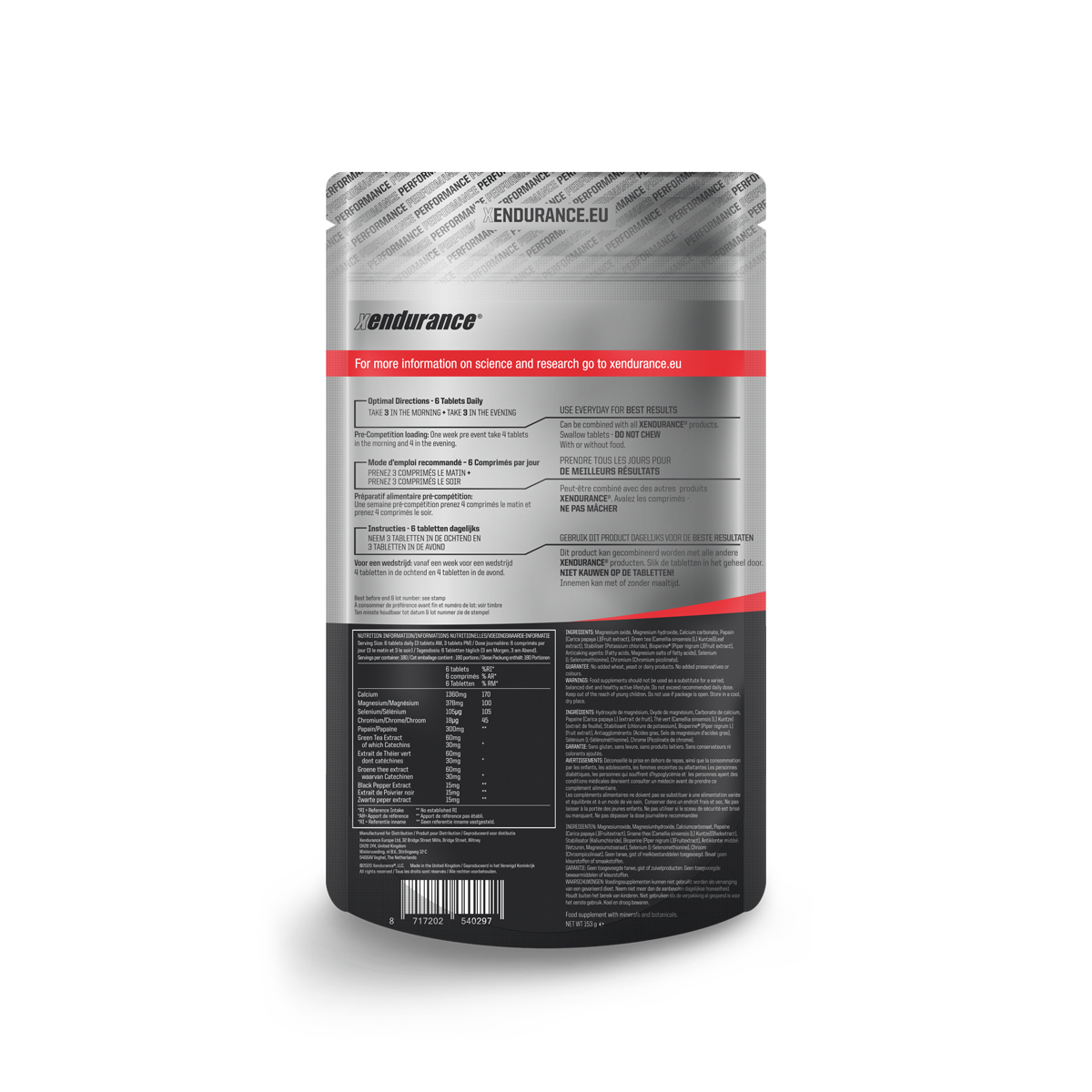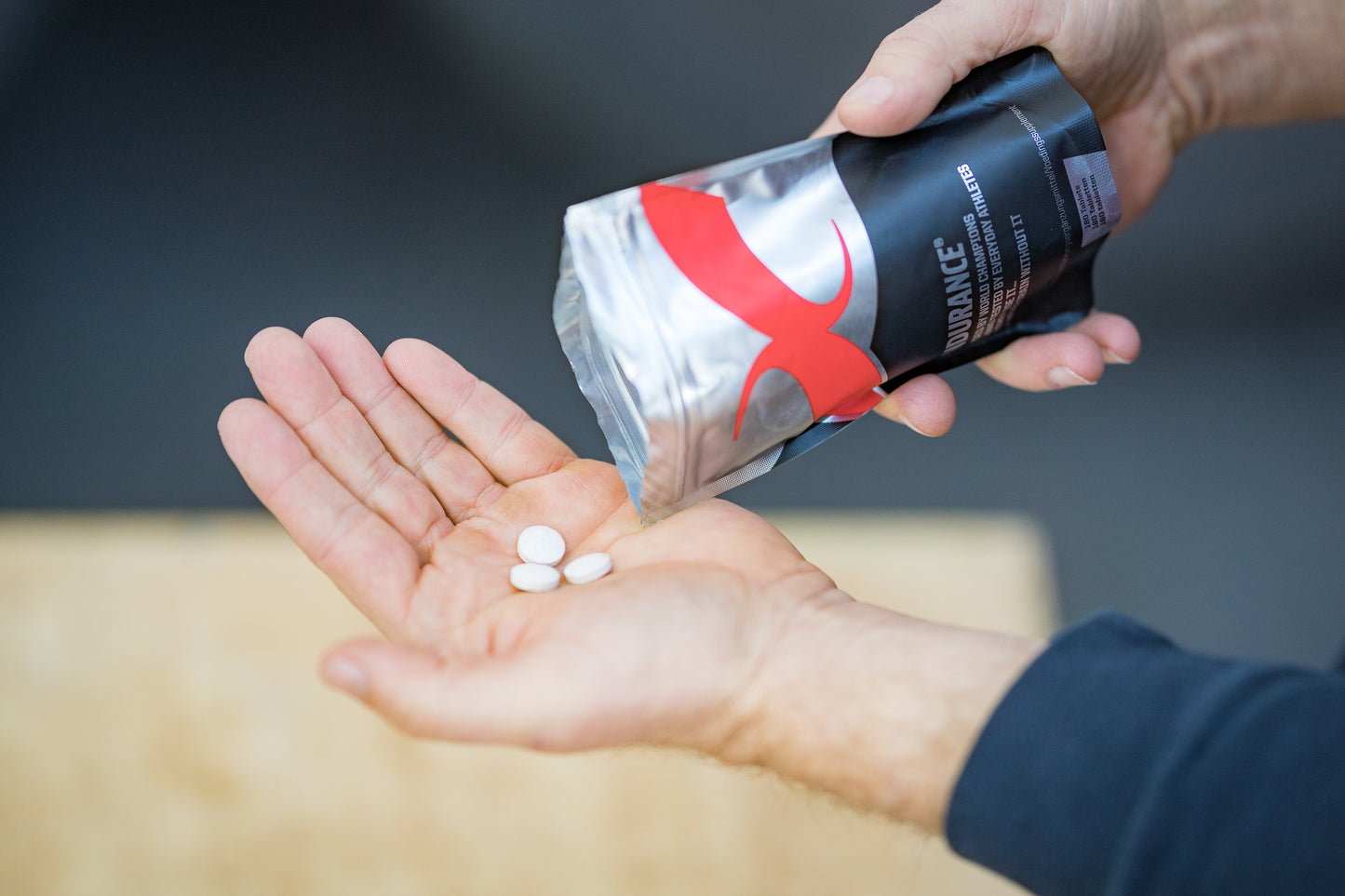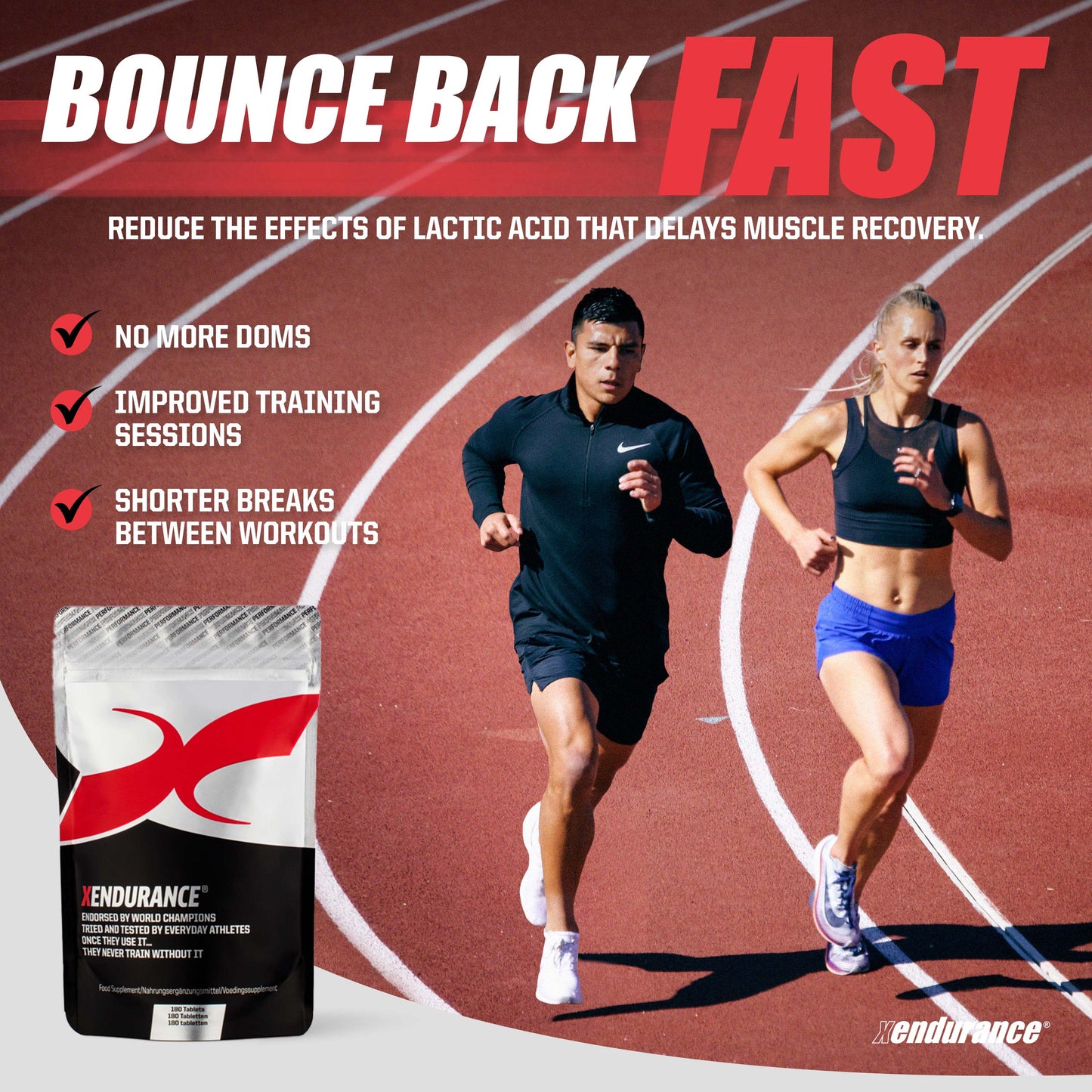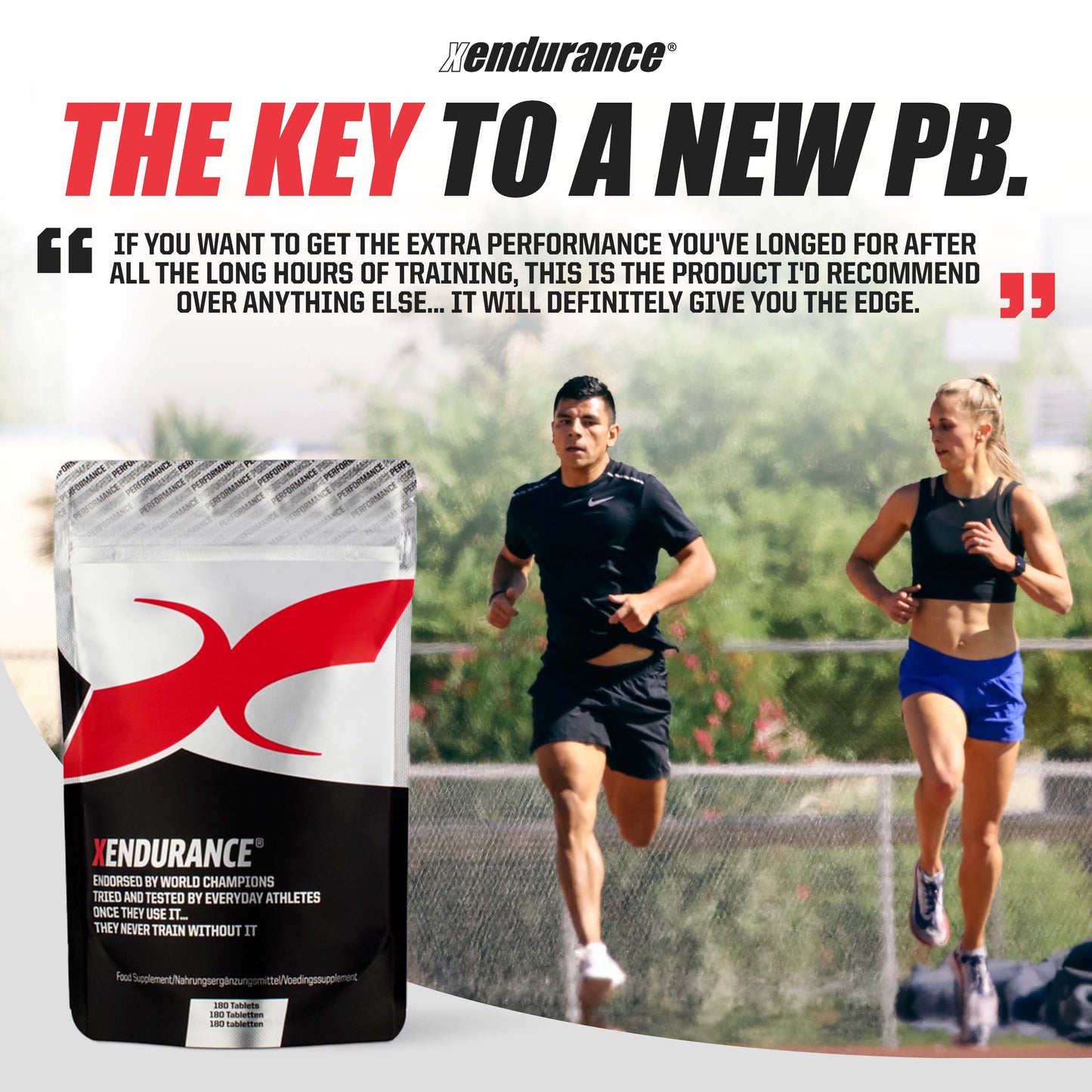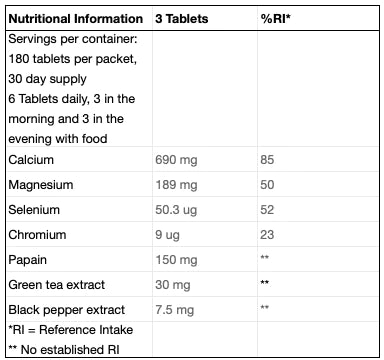Why do we need carbs?
During exercise, our body primarily uses carbohydrate stores to fuel exertion. Glucose in the blood is absorbed by your body's cells and used to produce ATP. ATP is then used to power the contraction of muscles. At lower intensities, fat is a preferred fuel source, but there is always some glycogen used, meanwhile at higher intensities, glycogen is required to meet the demand of ATP synthesis.
As exercise intensity increases, we tap into glycogen sources in the muscle and liver. Our muscle glycogen sits between 400-900g and the liver is 60-90g. By ingesting carbs during exercise, we provide the body with an alternative glucose source, meaning that we don't have to tap into the slower, less effective, fat source to produce ATP.
Has supplementing carbs been proven to help?
Various studies have proven the effectiveness of taking on board carbs during exercise. In one study, cyclists could continue training 25% longer with carbs over the placebo. In another experiement, studies showed the effect of a carb mouth rinse in exercise lasting under 1 hour; motor output is maintained for longer due to certain areas in the brain lighting up in response to the detecting of carbs.
In prolonged exercise of over 2 hours, carb ingestion has been proven to help maintin blood glucose concentration as well as helping to maintain high rates of carb oxidation and reducing liver glycogen breakdown.
Carb feeding during exercise has also been shown in various studies to delay fatigue, increase time to exhaustion, improve performance and even maintain skill performance.
How much should I be having?
Various studies have shown a levelling off of 1 gram per minute of carb ingestion, suggesting that this is the maximum exogenous carb rate. However, it has since been shown that mixing carb sources can help to improve this limit. By mixing carb sources, you get a higher rate of peak oxidation, meaning the body can use more than the 1 gram per minute as suggested in initial studies.
Taking this on board, here is a guideline on how much to ingest depending on exercise duration:
- 30 minutes - 75 minutes: small amount of carbs or a mouth rinse
- 1 hour - 2 hours: 30g / hour
- 2 hours - 3 hours: 60g / hour
- 3 hours plus: 90g / hour
Up to 60g/hour, it doesn't matter as much what the source is. Beyond this point you need multiple transportable sources (for example a mix of glucose and fructose), as oxidation rates will be limited to 60g/hour with a single source.
How do I avoid GI problems?
As many runners and triathletes will know, taking on carbs if your body isn't used to it can be a recipe for GI disaster! The key is to slowly build up tolerance, and get used to ingesting carbs as you train. It has also been shown that using multiple carb soucres (eg glucose and fructose) can help to reduce GI problems.
Xendurance Fuel 5 is made up of 4 different carb sources, so is the ideal carb to take on board, no matter the length of exercise.




